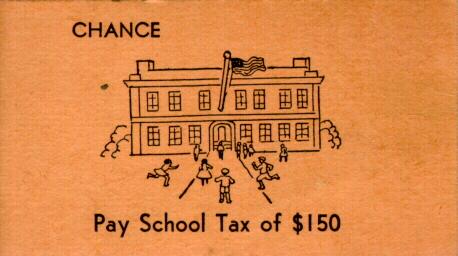Judgment days
 As exasperated as Teaneck residents are with the costly lawsuits filed by former Township employees, most knew better than to believe any Council candidate who campaigned on a promise to put a stop to them. The circumstances surrounding the latest fat payout to a disgruntled former worker demonstrate that the citizens and elected officials who together foot the bill for various past misdeeds are powerless to prevent themselves from being soaked again in the future.
As exasperated as Teaneck residents are with the costly lawsuits filed by former Township employees, most knew better than to believe any Council candidate who campaigned on a promise to put a stop to them. The circumstances surrounding the latest fat payout to a disgruntled former worker demonstrate that the citizens and elected officials who together foot the bill for various past misdeeds are powerless to prevent themselves from being soaked again in the future.As Brian Aberback reported in yesterday's Record, an ex-DPW employee and his lawyers are now several hundred thousand dollars richer at the expense of Teaneck's families thanks to the extraordinarily poor judgment of a DPW official who has not worked for Teaneck since 2004. Other recent outflows from our "self-insured" municipality to cover assorted settlements, judgments, and legal fees result from similarly avoidable self-inflicted wounds from the past. Having gained a reputation in a certain segment of the legal community as an easy mark, there's no reason to believe that anything other than more lawsuits await.
Those who campaigned on a platform of better labor relations realized this on some level. However, the measures they proposed to avoid these situations in the future did not address the root problem. An ombudsman dedicated to monitoring employee complaints would be nothing more than a costly early warning system for litigation coming down the pike. Commitment of non-existent funding for improved working conditions is infeasible and unlikely to placate employees who allege harassment, verbal abuse, and retaliation for whistle-blowing.
The real reason that the people of Teaneck have seen millions of their tax dollars go to line the pockets of attorneys and assorted aggrieved parties is that other paid Township employees have acted irresponsibly on the job. Unfortunately, the financial liability for the foolish behavior of a number of former superintendents and chiefs belongs to blameless taxpayers. Not only is it time to revisit the criteria for hiring and promotion decision and tighten their oversight, but we also must instill a culture of responsibility among senior departmental personnel in Teaneck (with penalties for infractions where legally permissible). After all, it is our money they're gambling with every time they open their mouths.












